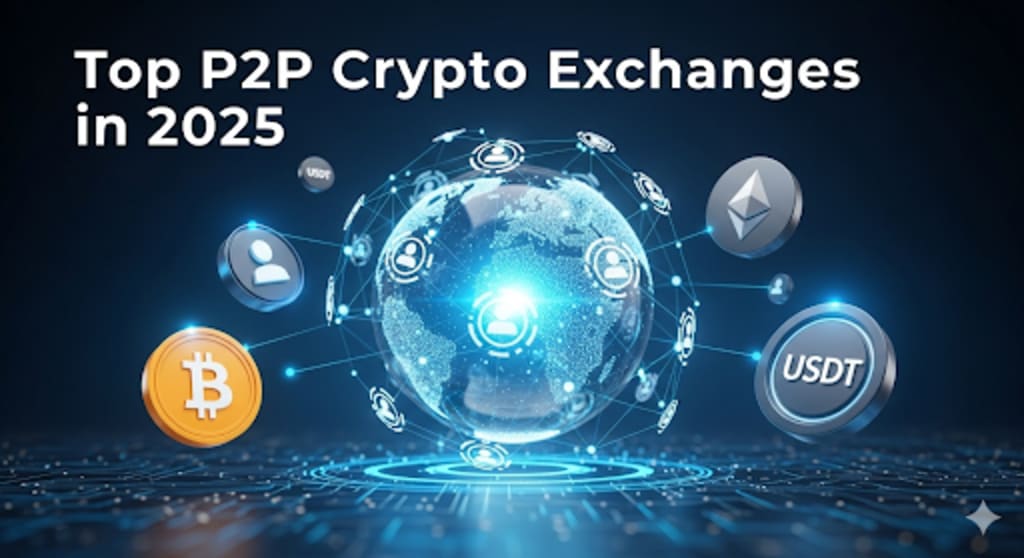How Enterprises Are Leveraging Real World Asset Tokenization Offerings for Growth
Exploring how forward-thinking enterprises are using Real World Asset tokenization to unlock capital, increase liquidity, and drive sustainable growth.

The intersection of blockchain technology and tangible assets has opened new possibilities for how businesses raise capital, manage investments, and scale operations. Among the most transformative innovations is Real World Asset (RWA) tokenization — the process of converting physical assets like real estate, commodities, art, and even intellectual property into digital tokens that can be stored, traded, or fractionalized on blockchain networks.
For enterprises, this is far more than a technological upgrade. It’s a strategic shift that enables greater liquidity, expands investor access, and improves operational efficiency. Across industries, forward-thinking businesses are finding ways to integrate RWA tokenization offerings into their growth strategies, unlocking value in assets that were once considered illiquid or difficult to trade.
Understanding Real World Asset Tokenization
Real World Asset tokenization involves issuing digital representations of physical or traditional financial assets on blockchain networks. Each token represents a stake or share in the underlying asset, enabling secure ownership transfer without the complexities of traditional intermediaries.
This technology brings transparency through immutable blockchain records, reduces transaction costs, and facilitates instant settlement. More importantly, it allows assets to be fractionalized — meaning that instead of selling an entire asset, enterprises can sell smaller, affordable units to a broader investor base.
Why RWA Tokenization Has Become a Strategic Business Tool
The appeal of RWA tokenization for enterprises lies in its ability to solve long-standing challenges in asset management and capital markets. Historically, assets like commercial real estate or private equity stakes have been accessible only to institutional investors or ultra-high-net-worth individuals due to their high entry costs and limited liquidity. Tokenization removes these barriers by enabling fractional ownership, allowing businesses to tap into a larger pool of investors.
It also offers operational benefits such as faster settlement times, reduced legal complexities, and automated compliance through smart contracts. These efficiencies lead to cost savings, quicker access to capital, and the ability to respond more rapidly to market opportunities.
Driving Growth Through Expanded Capital Access
One of the most significant ways enterprises leverage RWA tokenization offerings is by expanding their access to capital. Tokenized assets can be sold to global investors without the constraints of geography or traditional financial gatekeepers. This means that a business in Asia can attract funding from investors in Europe or North America without setting up complex cross-border arrangements.
For example, a renewable energy company could tokenize future revenue streams from a solar farm project, offering fractional shares to environmentally conscious investors worldwide. This approach not only raises capital efficiently but also builds a community of stakeholders who are aligned with the company’s mission.
Unlocking Liquidity in Traditionally Illiquid Assets
Many enterprises hold valuable assets that are difficult to convert into cash quickly, such as commercial properties, luxury goods, or long-term infrastructure projects. Tokenization changes this dynamic by creating liquid markets for such assets.
By issuing tokens backed by these assets, businesses can enable secondary market trading, where investors can buy or sell their stakes without waiting for the entire asset to be sold. This enhanced liquidity can strengthen a company’s balance sheet, reduce dependency on debt financing, and create more flexibility in pursuing new growth opportunities.
Fractional Ownership as a Growth Catalyst
Fractional ownership is at the heart of tokenization’s value proposition. Enterprises can divide high-value assets into smaller, more affordable units, making them accessible to retail and small-scale investors.
Consider a luxury hotel chain that wants to expand into new locations. Instead of relying solely on bank loans or large institutional investors, the company could tokenize ownership shares in specific properties. Investors could purchase tokens representing a small portion of the property, allowing the hotel chain to fund construction while giving token holders a stake in future revenue streams.
This democratized investment model not only accelerates fundraising but also fosters brand loyalty among investors who feel directly connected to the enterprise’s success.
Streamlining Operations and Compliance
RWA tokenization offerings are powered by blockchain smart contracts, which automate processes like dividend distribution, voting rights management, and regulatory compliance. This automation reduces administrative burdens and minimizes the potential for human error.
For enterprises operating in multiple jurisdictions, tokenization platforms can embed region-specific compliance requirements into the tokens themselves. This ensures that only eligible investors can buy or trade them, reducing legal risks while maintaining operational efficiency.
Expanding into New Market Segments
Tokenization also enables enterprises to explore market segments that were previously difficult to reach. Small-scale investors, global retail participants, and niche investment groups can all be targeted through carefully structured token offerings.
For example, a fine art investment firm could tokenize a portfolio of paintings, offering fractional shares to art enthusiasts who would otherwise never have the opportunity to invest in such high-value works. This strategy not only broadens the firm’s investor base but also creates a more resilient revenue stream by diversifying funding sources.
Strengthening Brand Positioning and Investor Relations
Offering tokenized assets positions an enterprise as an innovator in its industry. Early adopters of this model often attract media attention, strategic partnerships, and investor interest simply by demonstrating a forward-thinking approach to finance and asset management.
Moreover, token holders often become brand advocates, particularly when the assets are tied to tangible products or services. An enterprise that tokenizes part of its production facilities or product lines can turn its investors into engaged supporters who actively promote the business.
Real-World Use Cases of Enterprise RWA Tokenization
Across sectors, enterprises are experimenting with diverse RWA tokenization models:
In real estate, developers are tokenizing commercial properties to attract international investors and accelerate construction timelines. In the commodities market, agricultural enterprises are tokenizing harvest futures, enabling them to secure funding ahead of production cycles. In the entertainment industry, production companies are tokenizing revenue rights for films or music catalogs, allowing fans and investors to participate in future profits.
These examples illustrate that RWA tokenization is not limited to any one asset type or sector — its adaptability makes it a universal tool for enterprise growth.
Overcoming Market Skepticism Through Transparency
While RWA tokenization offers clear advantages, some investors remain cautious due to concerns about regulation, security, and valuation accuracy. Enterprises that prioritize transparency, robust governance, and reliable asset valuation can overcome these barriers.
Blockchain’s immutable nature allows for real-time audit trails, while third-party asset verification services can ensure trustworthiness. By combining these practices with clear investor communication, businesses can build credibility and attract long-term capital commitments.
The Long-Term Growth Potential for Enterprises
Enterprises that embrace RWA tokenization today position themselves at the forefront of a financial revolution. As regulatory frameworks mature and investor familiarity grows, tokenized assets are likely to become a mainstream part of corporate finance strategies.
This shift will benefit businesses that have already established expertise and infrastructure for managing tokenized offerings. Early adoption means not only reaping immediate capital and liquidity benefits but also gaining a competitive edge as the market scales.
Conclusion
Real World Asset tokenization offerings are no longer just a theoretical concept in blockchain circles — they are practical tools that enterprises are actively using to unlock growth, enhance liquidity, and broaden investor participation.
By embracing tokenization, businesses can transform static, illiquid assets into dynamic, tradable instruments that attract global investment and strengthen financial agility. As technology, regulations, and market acceptance evolve, enterprises that act now will be best positioned to capture the immense opportunities this innovation presents.
What's Your Reaction?
 Like
0
Like
0
 Dislike
0
Dislike
0
 Love
0
Love
0
 Funny
0
Funny
0
 Angry
0
Angry
0
 Sad
0
Sad
0
 Wow
0
Wow
0






















